Pam and I have been living in Frank since February of 2015. But I have another story coming about that. Stay tuned!
Before Frank, we had a forty foot 5th wheel, shown below. We decided to downsize to make our frequent travels much easier than they were with the sixty foot of 5th wheel and a large truck. We started our full time RV living in 2008. After nearly seven years of full time RV living, we decided to start looking at small RV motorhomes. That is when we decided on Frank, our 2013 Winnebago class C RV.
Living in a large RV is fairly easy for the inexperienced RVer. But to move into something that has nearly half the square footage takes careful planning. And to enjoy full time RV living in small RV motorhomes also takes a close bond between the people living in it.
These days there are many small RV motorhomes to choose from. They come in class A RV’s, class B RV’s, and class C RV’s. Pam and I chose a class C RV because we liked the Ford chassis that it was built on as well as for the ease of regular maintenance at a Ford dealership.
When you are moving around a lot, boondocking in various locations (no services camping), have a need to get fuel anywhere you want without worrying about the length of your RV, and not having to worry about the height of your RV, these small RV motorhomes that are being sold these days can be very comfortable for full time RV living.
However, there are some drawbacks to living in these small spaces compared to a little larger RV. A lot of the issues will come in relation to the compatibility of those living in it.
Take two people that have never lived in a small space, they have always lived in a large home, don’t spend much time in each others space, and stick them in a small RV motorhome, and there will be friction. It would be like throwing two outdoor cats in a small cage. That will never turn out well!
So what are some things that Pam and I can share about living in small RV motorhomes? After three and a half years of doing so, we can absolutely offer information to help you from making a possible mistake unless you are completely sure you can deal with the things we will discuss here.
I will list the positives and nagatives, and in no particular order of importance, because what may be a big issue to us may not be for you, and visa versa.
Positives
- Maneuverability: driving something that is between twenty-six to thirty-two feet makes it easy to travel any roads that you desire to travel on. Pam and I have been on the back roads in many states, including gravel, and have never had to worry about the road width or the clearance height. A little over ten feet tall is easy to clear most impediments, but when the RV gets to over thirteen feet, things change.
- Drivability: a smaller RV drives a lot like a larger car or van. Sharper turns when needed can be accomplished when conditions change and you wind up in a tight place filling the RV with fuel.
- Better fuel economy: Pam and I have easily gotten ten miles to the gallon while keeping the RV at a reasonable speed. Now fuel consumption is not a big issue for us. But, we keep the speed down for safety. The faster you go the better the chance is to mix it up with everyone else. RV’s don’t stop on a dime! Around sixty miles per hour is fast enough.
- Easy to back up: plain and simple, the shorter the RV is the easier it is to backup up, to turn sharply, and to see around the vehicle.
- Easy to Boondock: when staying overnight in Walmart’s, Cracker Barrels, Cabela’s, truck stops, etc. it is easy to slide in anywhere and blend in. Plus, some smaller RV’s don’t always need to have their slideouts out to be functional. We have lived for days in Frank without the slides out. Keep this in mind when choosing a floor plan.
- Maintenance is Cheaper: when it comes to fuel fill-ups, oil changes, tires, batteries, etc. small RV motorhomes are easier to care for than their larger counterparts. We have been able to easily get service at Ford dealerships around the country because we could easily get in their service bays.
- Less to clean inside and out: this is an obvious one! We can vacuum Frank in five minutes!
- Easy to Break Camp: when it comes time to move, it’s slides in, services unhooked, jacks up, and we are off. When we had the behemoth fifth wheel RV it took hours to get the things ready to move, including hooking it up to the tow vehicle.
- Towing / Hookup: hooking up a trailer or vehicle to small RV motorhomes is easy due to you are towing less weight and both vehicles are a lot more maneuverable. So, getting them connected is much easier.
- Great if you are moving around a lot: the ease of getting in and out of RV sites, driving in city traffic, using it to go shopping without a tow vehicle present, and maneuvering in tight places makes small RV motorhomes a very popular choice.
Negatives
- Carrying Capacity: depending on the chassis that the RV manufacturer uses, the amount of stuff that you can carry is reduced in these smaller RV’s. Values can range from five hundred pounds to a little over two thousand pounds. When you are putting all your worldly possessions onboard for full time RV living, and towing a trailer or a vehicle, this can become a big issue. You will want to consider this point carefully and look for the label on the RV that shows these figures.
- Drivability: you will feel the wind more and the effects of trucks passing you in a smaller RV. When you have a crosswind while driving highway speeds it can be a fight to keep the RV in a straight line path as you battle the wind gusts. It is the same with trucks passing. They tend to push you away when they first pass and then suck you in as they go by. No big deal, you just have to be aware that this is what happens in these lighter RV’s.
- Storage: even though there is limited storage in some of these RV’s you can still overload them. We had Frank weighed at each tire and found that our rear axle was at maximum load and the front axle was a bit under. What added the extra weight was the five hundred pounds of tongue weight from the trailer. But, the trailer allowed us to carry a couple of thousand pounds more stuff that the RV could not carry. It could tow a maximum of five thousand pound trailer with a five hundred pound tongue weight.
- Towing: so, even though we could tow what we needed, for others, the limitations of the small RV chassis and what it can tow can be an issue. If you have a larger vehicle, the RV may not be able to pull it given the maximum weight rating and what is being towed.
- Small bathroom: okay, this can be a big issue! We have had a small bathroom now for over three years, and we have made it work. Now we are not large people, but if someone is, the smaller showers will never work! If you drop the soap you will not be able to pick it up without turning off the water and opening the shower door or screen. Just moving around can be difficult. And, you may only have a six-gallon water heater. Long showers are not going to be an option. You can use the facilities at the RV park, but most times that is inconvenient and they are not always as clean as we would like them to be. Also, using the RV toilet and wiping your hind end can truly be problematic with some of the toilet locations! LOL
- Personal Space: chances are, if you are both moving about in the RV, you are going to be in each other’s way. There is no personal space. There is no getting away from your spouse if arguments occur. That is why we recommend to people who are thinking about adopting the full time RV lifestyle, to rent an RV that is very close to the one they are considering so they can go out and experience what life will be like aboard these small RV motorhomes.
- Laundry: you will find most small RV motorhomes will not have a washer or dryer. You really have to be in the thirty-six-foot length, or more, to get either the separate or combo units installed. Is this a big deal? It depends on you. We had a washer and dryer in our 5th wheel and loved them. It avoided having to go to the RV park laundry and spending hours getting the job done. Laundry facilities can range from great to not so great. Also, you just never know what has been washed in them before you get there!
- Hanging clothing: there is limited space for hanging clothing. Having a large wardrobe selection will never work in this type of RV. That means you will be washing clothes more frequently.
- Cooking Space: if you want to cook gourmet meals, the RV lifestyle is not the ticket. There is limited space and you can only do so much in it. We cook frozen pizzas, make salads, bake chicken and fish, and can make skillets on the cooktop stove. You can do pretty well, you are just not going to be able to create four-course meals. And your dishware should be unbreakable and easy to clean by hand. Large pots and pans will not be easy to clean in a small RV sink!
- Kitchen Gadgets: these are great to have around the house but you probably won’t have room to store them in the RV. You may be able to bring along a few of your favorites but the rest will have to go.
- Small Refrigerator: an RV refrigerator in a small RV motorhome is going to have less than half the storage capacity as one that you have in your home, around seven cubic feet. Sometimes you may get twelve cubic feet but at the cost of losing kitchen storage.
- Limited Seating Space for you and visitors: this is pretty straightforward. The shorter the RV, the less seating arrangements will exist. You have to decide what you can live with. Pam and I can sit at the dinette, spin the front driver and co-pilot seat around (which is not comfortable because they sit too low), and if we want to lay down we have to use the short queen bed.
- Limited Sleeping Space: in larger RV’s you have a bedroom, a sleeper sofa, and perhaps some other bunk type arrangements. But, in a small RV, you get a smaller bed, perhaps a dinette that makes into a small bed, or maybe a bed over the cab. In most cases, these are fairly small and not very comfortable for six-foot tall RVers.
- Limited Freshwater, black, and gray tank storage: you have approximately half the storage. or less then you do in a larger RV. That is no big deal if you are staying in RV parks all the time. But if you want to dry camp, then this issue can become problematic.
- Limited Electrical Supply: this can be a big issue! Most people don’t understand that when they leave their sticks and bricks home, where you can turn on anything electrical you want, and live in an RV, that this is not the same when it comes to electrical usage. You only have limited electrical supply that you can use. Most smaller RV’s supply 30 amps of power. That is enough to run an AC unit and something else in the 1000 watt range. After that, you have to pick and choose. During the winter months it easier because heating devices can run on propane. My point is, you only have 3,600 watts of power compared to a larger RV that has 12,000 watts.
- None of the extras you get in a larger RV: things like more seating area choices, extra beds, recliners, washer/dryers, ceiling fans, dishwashers, fireplaces, storage space, inverters, multiple AC units, bigger bathrooms, room to move around, etc. The list goes on and on!
- One AC unit: if it breaks you only have the only the one. This can be problematic when temperatures are in the nineties and it can be days before a fix can be found. Mobile RV techs can come to the rescue but they will still have to order an AC unit to replace it. Most times these units cannot be fixed, they have to be replaced unless it is just a fan or control module issue. When it comes to the cooling unit, when it goes, replacement of the whole unit is recommended.
- Limited working room for running a small business: since Pam and I run a small business from our RV home we can tell you that it becomes a lot more challenging in small RV motorhomes! My printer is constantly moving about so that it is not in the way depending on what we need access to. And during travel days it migrates between the bed and the kitchen countertop. Having enough workspace is difficult. It is either the small dinette table, a freestanding table, the kitchen countertop, or a mixture of the three.
- Pets play space in bad weather: due to limited floor space pets don’t have a lot of room to romp around
- Not full time RV living rated: most small RV motorhomes are not rated for full time RV living or warrantied if they are lived in full time. The main problem with this is the RV will not last as long as those that are. It will be colder in the winter and hotter in the summer. It will also take more resources to heat and cool.
- TV viewing may be problematic depending on the floorplan: In smaller RV’s, trying to watch TV can be a problem because if someone is preparing a meal or moving around a fair bit, there is always someone in your way. This is a constant annoyance in Frank. If I am sitting trying to watch TV I can only see half the screen because it is located by the kitchen countertop. Also, the TV may not be located in a place that allows for comfortable viewing. It may be good for short sessions, but not two-hour movies. Just saying.
- Odors are more intensified in a small space: this one speaks for itself! The smaller the space the greater the problem.
I hope these items that have been mentioned will be helpful as you look into full time RV living in small RV motorhomes. Please remember that these are just opinions that I have expressed that are based on our ten years of full time RV living.
Please feel free to leave a comment below.
Blessings,
Howard, Pam, and Lindsey!

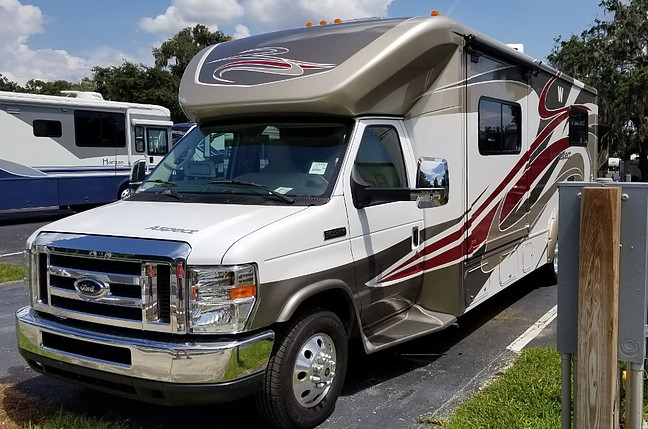
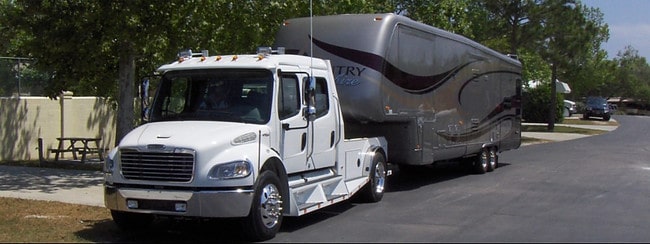


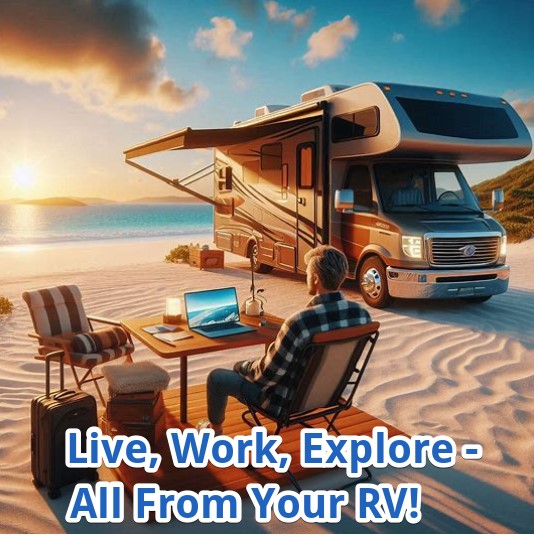
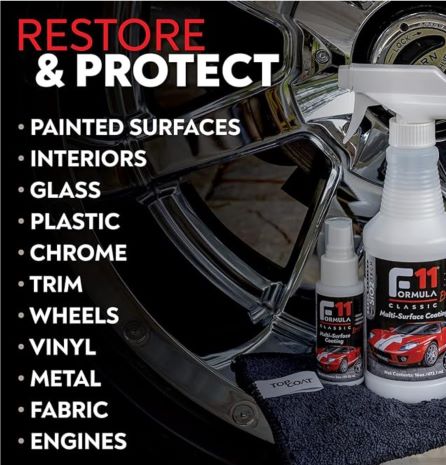
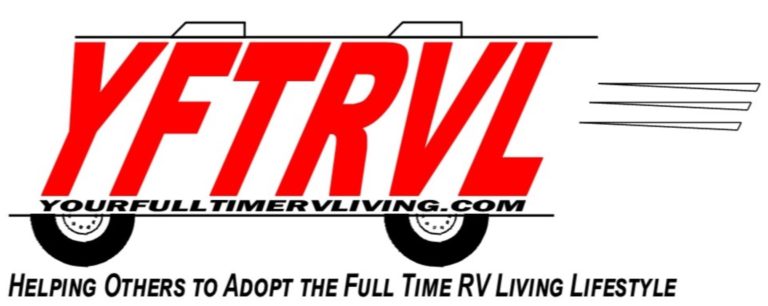



2 comments
Excellent job on your review
Author
Thanks for stopping by Kellon!